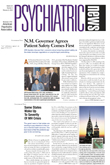With the signature of President Bush on December 3, 2003, the Food and Drug Administration (FDA) ended nearly 10 years of frustration, gaining the authority to force drug makers to prove that their medications are safe and effective in children and adolescents.
The enactment of the Pediatric Research Equity Act of 2003 allows the FDA to achieve a long-sought goal. Since 1997, when Congress first required the agency to “promote research into pediatric use of adult medications,” the FDA has struggled to gather data on the safety and efficacy of medications prescribed every day for children, without the evidence base to support this use.
The agency first developed the concept of “pediatric exclusivity”—voluntary submission by drug manufacturers of minimal data on safety of their medications in children in exchange for extended patent protection. When the exclusivity program proved not to be very productive, the agency formulated the “pediatric rule,” requiring submission of the data included with any new drug application. In October 2000, however, the pediatric rule was struck down in federal court, when justices agreed with industry claims that the FDA lacked the statutory authority to require the research (Psychiatric News, September 19, 2003).
“When it goes into effect today,” said FDA Commissioner Mark McLellan, M.D., on December 3, 2003, “the Pediatric Research Equity Act of 2003 will allow the FDA to close the knowledge gap when it comes to treating children. The FDA will now have clear authority to require pediatric studies of drugs, when other approaches are not sufficient to ensure that drugs are safe and effective for children.”
The law grants the FDA the authority to require the submission of data on safety and effectiveness, as well as on dosing and administration, as part of any submission of an application for approval of a new active ingredient, new indication, new dosage forms, new dosing regiment, or new route of administration.
If the course of a disease and the effects of the drug treating it are “sufficiently similar in adults and pediatric patients,” the FDA may waive the requirement if it can be concluded that “pediatric effectiveness can be extrapolated from adequate and well-controlled studies in adults.”
Also, if adult studies are completed significantly in advance of pediatric studies, a drug may be approved for adult use, with a date set for subsequent submission of pediatric data.
The new law should significantly boost the study of psychotropic safety and efficacy in children and adolescent populations. To date, only two such medications have indications for pediatric use: fluoxetine (Prozac), for major depressive disorder in patients aged 7 and older and obsessive-compulsive disorder in patients aged 8 and older; and atomoxetine (Strattera), for treatment of ADHD in patients aged 6 and older. Fluvoxamine (Luvox) has pediatric safety and dosing information for patients with obsessive-compulsive disorder aged 8 and older, included in its approved labeling, but does not carry a pediatric indication.
In December 2000 APA partnered with the American Academy of Child and Adolescent Psychiatry and the American Academy of Pediatrics to call on the AMA to lobby for passage of legislation equivalent to the Pediatric Research Equity Act (Psychiatric News, January 19, 2001).
The Pediatric Research Equity Act can be accessed online at http://thomas.loc.gov by searching on the bill number, S 650. ▪
